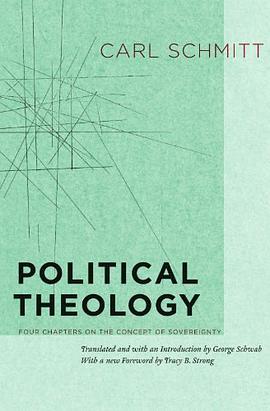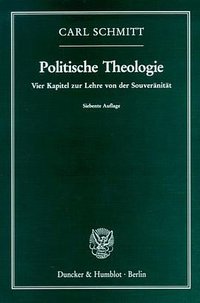Political Theology
豆瓣
Four Chapters on the Concept of Sovereignty
Carl Schmitt 译者: George Schwab
简介
Written in the intense political and intellectual tumult of the early years of the Weimar Republic, "Political Theology" develops the distinctive theory of sovereignty that made Carl Schmitt one of the most significant and controversial political theorists of the twentieth century. Focusing on the relationships among political leadership, the norms of the legal order, and the state of political emergency, Schmitt argues in "Political Theology" that legal order ultimately rests upon the decisions of the sovereign. According to Schmitt, only the sovereign can meet the needs of an "exceptional" time and transcend legal order so that order can then be reestablished. Convinced that the state is governed by the ever-present possibility of conflict, Schmitt theorizes that the state exists only to maintain its integrity in order to ensure order and stability. Suggesting that all concepts of modern political thought are secularized theological concepts, Schmitt concludes "Political Theology" with a critique of liberalism and its attempt to depoliticize political thought by avoiding fundamental political decisions.
contents
Foreword Tracy B. Strong
Introduction George Schwab
Preface to the Second Edition (1934)
1. Definition of Sovereignty
2. The Problem of Sovereignty as the Problem of the Legal Form and of the Decision
3. Political Theology
4. On the Counterrevolutionary Philosophy of the State (de Maistre, Bonald, Donoso Cortés)
Index


